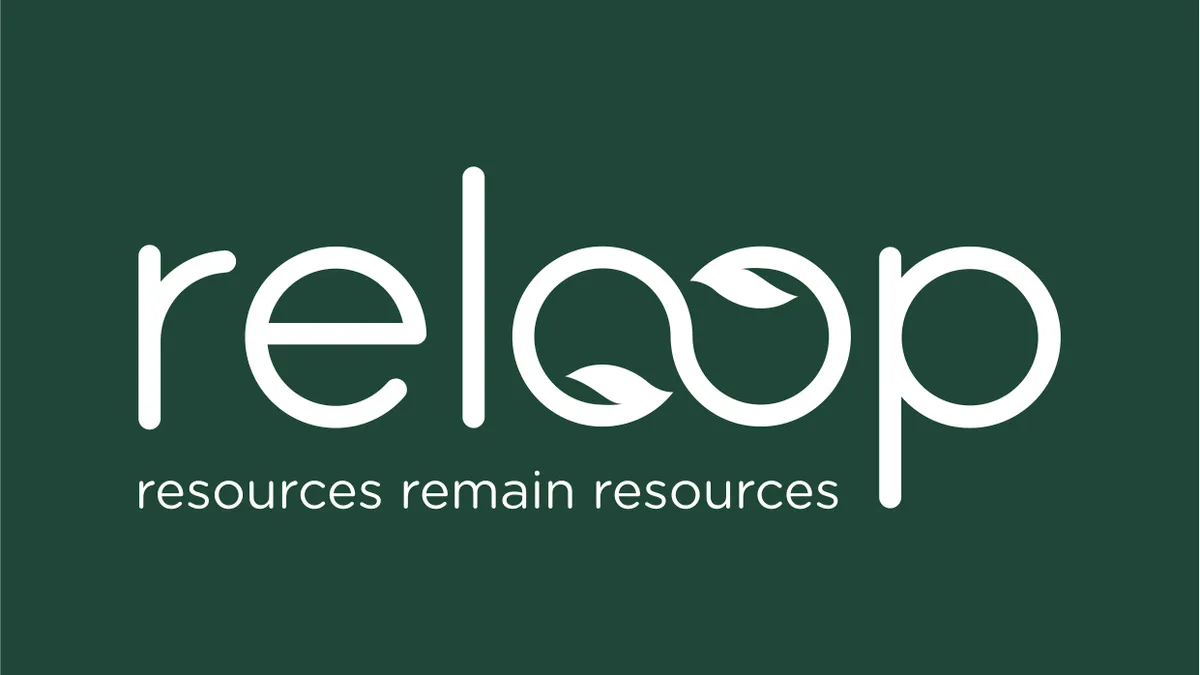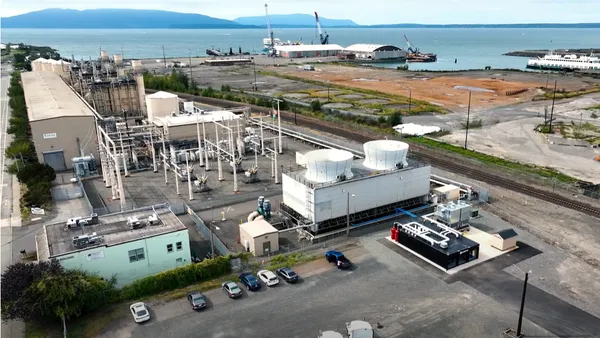Dive Brief:
- Reloop is entering North America with plans to support circular economy policy discussions at all levels of government. The platform is best known for working on issues such as extended producer responsibility (EPR), deposit return systems and packaging design across Europe.
- Elizabeth Balkan, director of Reloop North America, recently exited her role as director of the Natural Resource Defense Council's food waste program. She previously held multiple positions in New York City government, including director of policy at the Department of Sanitation.
- The North American nonprofit's membership hasn't been disclosed, but Reloop plans to work with "NGOs, governments and companies that we see as ‘accelerators’ to a circular economy" and support policy discussions with technical expertise. “We very much see ourselves as being front and center talking about the big issues and identifying the sticky points so that we can resolve the mistruths that are often delaying the agenda," said Balkan.
Dive Insight:
At a time when stakeholders in the recycling sector are experiencing mounting pressure on all sides from market fluctuation, policy mandates and increasingly ambitious corporate commitments, the U.S. market could be poised for significant change in the coming years. Competing attention from companies, trade groups, advocacy organizations, policymakers and others has left certain people in the sector feeling fatigued, per ongoing discussions with sources, with some saying tangible progress has been too slow.
“What we’re seeing here is I think a culmination of opportunity for innovation alongside a real cynicism around the corporate promises that have been made and unfulfilled," said Balkan, adding "the era of greenwashing seems to be over" and expectations are higher for companies to stick to their proposed changes in the near future.
Asked what Reloop can bring to this area that will be different, Balkan pointed to the organization's track record of providing evidence-based solutions in other countries with results supported by a broad range of stakeholders. She said the intention is to work as a convener that can "catalyze the shared interest" among various entities who may be driven primarily by different factors like finances or environmental justice concerns.
Reloop has carved out a role for itself since launching in 2015, becoming one of the leading groups for technical expertise around circular economy policy and packaging questions in the European Union. Following a previous expansion with Reloop Pacific in 2019, the group targeted North America as the next step because U.S. action specifically could "help catalyze wider global reform." Future expansion into Latin America is also possible, along with plans for a Reloop Asia.
Sarah Edwards, CEO of Eunomia Research & Consulting's North American division, said she has seen Reloop's work deliver clear results in the EU. According to Edwards and others, Reloop's analysis and consultation played a key role in convincing policymakers to increase target recycled content levels for packaging covered by the European Commission's single-use plastics directive. That data-driven, technical knowledge about what is possible for packaging design, deposit return systems, EPR and related areas could be a complementary addition to the current landscape.
“I think they’ll challenge the status quo. I don’t think they’re afraid of saying what others are afraid of saying or may find it harder to say due to how they’ve been established and who their funders are. I think they’ll provide a very objective view and are really dedicated to making systems circular," said Edwards.
After launching UK-based Eunomia's own U.S. division a few years ago, Edwards said she thinks Reloop could bring a "new energy" to these issues. That could mean helping to adapt existing systems in certain states, or playing a role in creating new ones for states that have more limited frameworks.
Balkan anticipates engaging in city, state or federal policy discussions as needed. Possible examples could include supporting the passage or implementation of bills like California's new recycled content mandate for plastic beverage containers, EPR or product stewardship policies and bottle bill expansions. Balkan also sees potential for more regional uniformity and collaboration on circular economy policy in areas such as the Northeast, citing the Pacific Coast Collaborative and Regional Greenhouse Gas Initiative as examples.
While the U.S. market's decentralized regulatory approach is a somewhat unique factor in handling many of these issues, the growing role of global brands adapting to new policies in other countries and mounting consumer demand for solutions could mean change is coming.
“We have one planet, we have one market. And as these brands are also increasingly operating in a global context those solutions and innovations need to be harmonized," said Balkan. “Things are really starting to shift."













